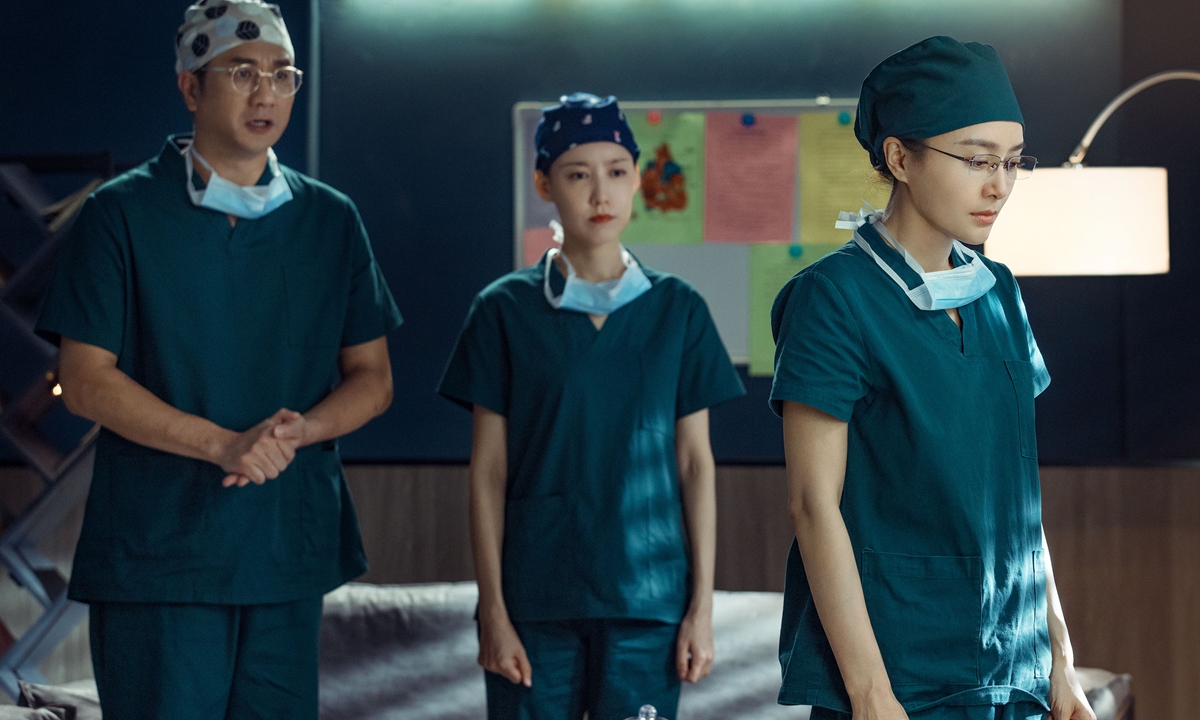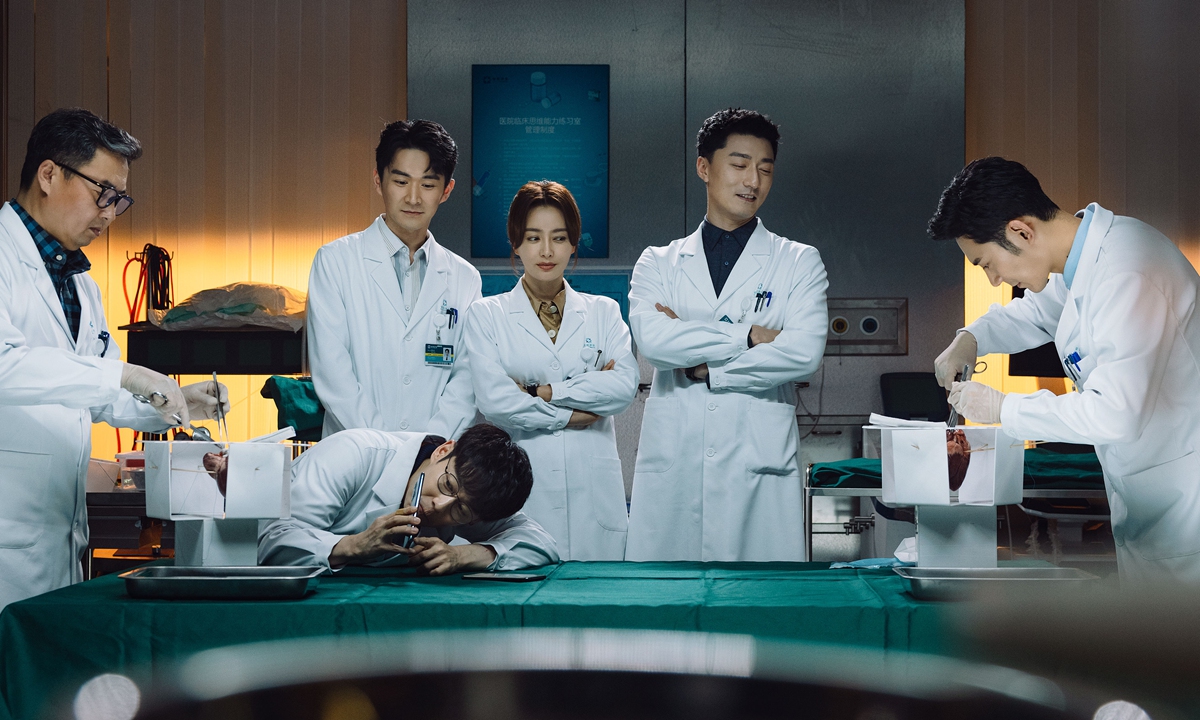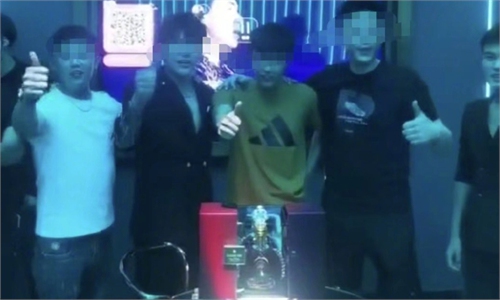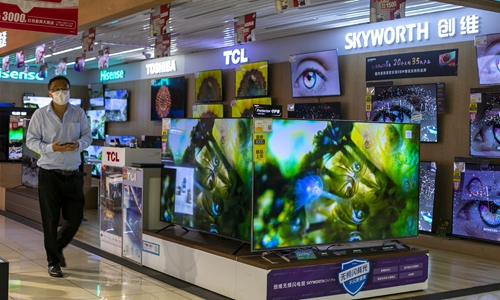ARTS / TV
New medical series focuses on China’s breakthrough technology in artificial hearts
Heart of the matter

Promotional material of Dr. Tang Photo: Courtesy of iQIYI

Promotional material of Dr. Tang Photo: Courtesy of iQIYI
"The surgical treatment of heart failure in China has entered the era of the artificial heart," Hu Shengshou, director of the Fuwai Hospital in Beijing, one of the best hospitals specializing in cardiovascular diseases and a leading expert in cardiovascular disease, announced in December 2021 after China's first magnetic ventricular assist device (CH-VAD) officially hit the market.CH-VAD, informally called an artificial heart, mainly aims at preventing heart failure. The advanced technology had previously been monopolized by overseas medical companies, but now the Chinese artificial heart, weighing less than 180 grams, has its own advantages such as lower risk of infection compared to overseas products.
A new medical series Dr. Tang, which debuted Saturday on video platform iQIYI, focuses on a group of Chinese doctors working at the department of cardiac surgery.
"The series covers 28 medical cases. Through these 28 cases, audiences can learn some common knowledge about heart disease. If they finish watching this drama, they may finally have some understanding of heart problems that can help them avoid these problems. I think that's the most significant part of the drama," Dai Ying, producer of the series and vice president of iQIYI, told the Global Times.
Advances in medicine
According to Dai, the development and research of CH-VAD technology is one of main storylines in the drama.
Tang Jiayu (Qin Lan) works overseas and enjoys a high reputation in the field of cardiac medicine abroad. She decides to come back to China after being invited by the deputy director of a Chinese hospital. The series follows Tang as she works at the hospital.
Tang becomes head of the department of cardiac surgery, but her colleagues do not completely accept her at first since they are unaware of her expertise.
Showing the growth of the doctors and the changes in their relationships with each other, the drama reveals the necessity and urgency of the artificial heart technology, Dai explained.
"Since 2019, there have been around 550,000 deaths each year because of sudden heart attacks. This is a gruesome number, so we are hoping to discuss the research and development of CH-VAD through the series to allow everybody to see the potential of future medicine, and to give them more hope," Dai noted.
Zheng Jun, head of the department of cardiac surgery at Beijing Anzhen Hospital, also one of the best in China, worked as a consultant for the show. He said that the series shows the reality and advances of today's medical industry in China.
"Several Chinese companies are developing the technology and trying to reach advanced international levels," Zheng told the Global Times. "CH-VAD is one of the ultimate research issues in our field and we long to see the appearance of better products."
Zheng confirmed that the 28 cases depicted in the series are all based on real cases and the issues debated in the show can help guide viewers to seek the right medical advice.
Ensuring authenticity
Zheng's team includes 70 doctors and followed the creation of CH-VAD for nearly two years to ensure the show's accuracy.
Dai and Zheng both emphasized that medical series should focus on portraying reality as audiences need to have accurate information about medical treatment.
Zheng said that the first time he arrived on set, he was surprised because he felt he was at an actual hospital. The slogans, surgery rooms and even the information about the patients seemed real to Zheng.
The artificial heart that appears in the series is a real one on loan from a factory, while much of the medical equipment was purchased or restored to ensure the series' feeling of authenticity.
The series does not avoid tackling difficult issues in the medical industry, such as the complicated relationship between patients and medical workers.
"The work presents the normal doctor-patient relationship that we want to promote. It not only discusses how to seek medical advice but also tells viewers how to deal with medical workers," Zheng noted.
Dai said that the production team aims to present a work that can heal viewers' souls. The hospital is a place where pressure and negative feelings can accumulate, so conflicts often happen.
"We also want to tell audiences how to achieve emotional self-healing in the hospital," said Dai.




